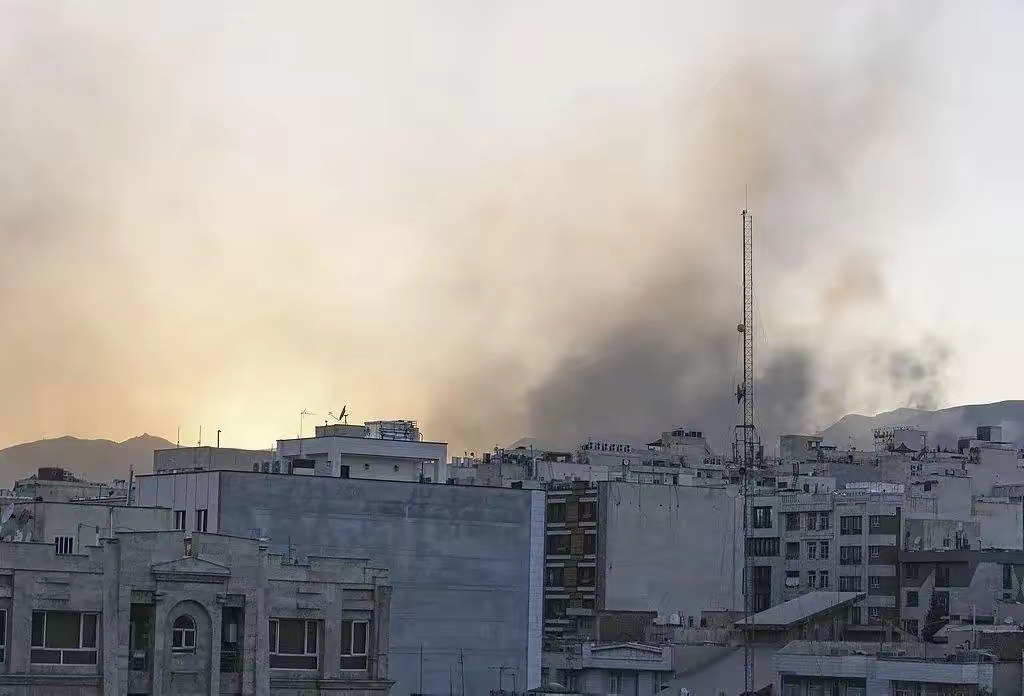
Recently, the situation in the Middle East has once again become tense, and the news of the United States attacking Iran's nuclear facilities has attracted global attention. On the chessboard of international politics and geopolitical strategy, this move is like a giant rock thrown into a calm lake, stirring up a thousand layers of waves with far-reaching and complex impacts, with one move moving the whole body.
From a geopolitical perspective, the US attack on Iran's nuclear facilities has disrupted the existing geopolitical balance in the Middle East region. Iran is a major power with significant influence in the Middle East region, with a superior geographical location that holds the throat of the Strait of Hormuz, a global oil transportation hub. For a long time, Iran has held a key position in the geopolitical landscape of the Middle East due to its geopolitical advantages, military strength, and active participation in regional affairs. The recent attack by the United States on Iran's nuclear facilities is undoubtedly a serious violation of Iran's core interests and will inevitably trigger a strong retaliation from Iran.
Neighboring countries are also difficult to stay out of the matter. As an important ally of the United States in the Middle East, Israel has always harbored resentment towards Iran's nuclear facilities. This US action is to some extent in line with Israel's strategic interests and may further enhance Israel's tough stance in regional affairs. However, for other neighboring countries of Iran, such as Iraq and Saudi Arabia, the attacks by the United States have brought more concerns and anxieties.
At the military level, the US attack on Iran's nuclear facilities will trigger an escalation of military confrontation. Iran has a relatively strong military force and its missile technology is at a leading level in the Middle East. It possesses a large number of short - and medium range missiles, which can pose a serious threat to US military bases in the Middle East. According to the New York Times citing US officials, US intelligence shows that Iran is ready with missiles and other military equipment, and if the US intervenes in the conflict, Iran will launch attacks on US military bases in the Middle East. In addition, Iran may also adopt strategies such as laying mines in the Strait of Hormuz in an attempt to trap US warships in the Persian Gulf, which will seriously affect global oil transportation and energy security.
On the US side, although it has advanced military technology and strong military power, its long-term military intervention in the Middle East has plunged it into a quagmire, consuming a large amount of manpower, material resources, and financial resources. The attack on Iran's nuclear facilities may trigger a full-scale retaliation from Iran, and the United States will have to invest more military resources to respond, which will further exacerbate the military burden on the United States. At the same time, the military actions of the United States may also face condemnation and pressure from the international community, and the legitimacy of its military actions in the Middle East will be questioned.
In terms of international trade, the Middle East is one of the important global trade hubs, and the intensification of the US Iran conflict may seriously affect trade activities in the region. The blockade or insecurity of the Strait of Hormuz will hinder the normal conduct of maritime trade, and many countries and enterprises that rely on importing raw materials from the Middle East or exporting goods to the region will suffer significant losses. The global supply chain may also be disrupted as a result, leading to disruptions in the production and operation of global manufacturing and service industries.
From a diplomatic perspective, the US attack on Iran's nuclear facilities has disrupted the international diplomatic order and nuclear non-proliferation system. For many years, the international community has been striving to resolve the Iranian nuclear issue through diplomatic means, and the comprehensive agreement on the Iranian nuclear issue is an important achievement of diplomatic efforts. The unilateral withdrawal of the United States from the Iran nuclear agreement and the launch of attacks on Iran's nuclear facilities is a blatant denial of international diplomatic efforts and seriously damages the international community's trust in the United States. This behavior also undermines the authority of the nuclear non-proliferation system, which may provoke other countries to question the nuclear non-proliferation mechanism, and even stimulate some countries to reconsider the development of nuclear weapons, thereby having a negative impact on the global nuclear security situation.
The US attack on Iran's nuclear facilities is a risky and uncertain move that involves multiple fields such as geopolitics, military, energy, trade, and diplomacy. This incident once again reminds the international community that resolving disputes through peaceful negotiations and diplomatic channels is the fundamental way to achieve regional peace and stability. Any attempt to solve complex international issues through military means may bring unexpected consequences and result in heavy costs for the region and the world. The international community should work together to push the United States and Iran back to the negotiating table, resolve differences through dialogue and consultation, maintain peace and stability in the Middle East region, and promote global peace and development.

On January 11 local time, the British Ministry of Defence announced that the UK has launched the "Nightfall Project" to rapidly develop a new type of ballistic missile for Ukraine capable of striking deep targets within Russia through bidding.
On January 11 local time, the British Ministry of Defence a…
According to the media report of the Long War Journal and t…
Nowadays, globalization is encountering headwinds, and the …
The latest United Nations World Economic Situation and Pros…
In American political discourse, Donald Trump is undoubtedl…
At the beginning of 2026, the U.S. Treasury Department face…